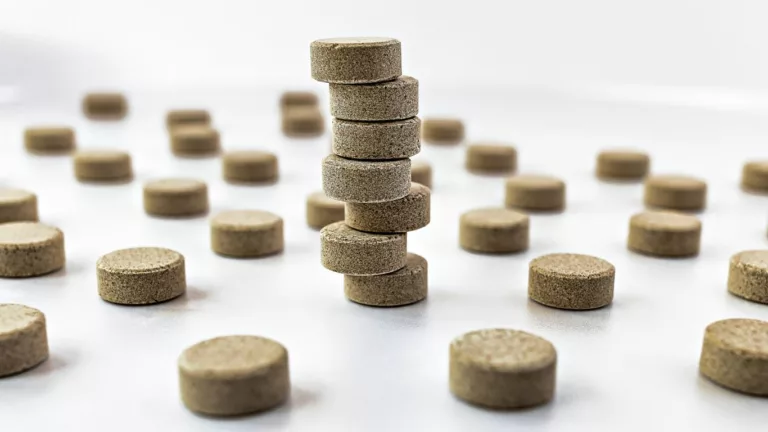Asthma Home Remedies for Adults: Natural Solutions for Relief
If you’re living with asthma, managing symptoms can sometimes feel like a never-ending battle. While medications are a key part of treatment, there are several natural remedies you can try at home to help ease symptoms, improve lung function, and reduce flare-ups.
Asthma can make breathing difficult, and while there’s no cure for it, you don’t have to rely solely on prescription medications to keep symptoms under control. With a few lifestyle changes and natural remedies, you can manage your asthma better and improve your quality of life. Let’s dive into some of the most effective asthma home remedies for adults that can help you breathe a little easier. 
Why Natural Remedies for Asthma?
Many people with asthma experience triggers like allergies, pollution, or even stress that can make their symptoms worse. While medication is often necessary, certain natural remedies can complement your treatment plan and help you reduce reliance on inhalers. Whether it’s calming inflammation or improving lung function, these remedies are worth considering. 
1. Breathing Exercises
A great way to take control of your asthma symptoms is through regular breathing exercises. These exercises can strengthen your lungs, improve airflow, and help you stay calm during an asthma attack.
How to Try:
- Pursed Lip Breathing: Inhale slowly through your nose for two counts, hold your breath for two counts, and then exhale slowly through pursed lips for four counts. This helps slow your breathing and keeps airways open.
- Diaphragmatic Breathing: Lie on your back with your knees bent, place one hand on your chest and the other on your stomach, and take slow, deep breaths. Focus on expanding your diaphragm, not your chest. This strengthens your diaphragm and improves lung efficiency.

2. Honey and Warm Water
Honey has long been used for its soothing properties, especially when it comes to respiratory health. It’s not just for sore throats! Honey can help reduce airway inflammation and prevent coughing.
How to Try:
- Mix a teaspoon of honey with warm water and drink it daily, especially in the morning. Honey also has antibacterial properties, which can help prevent respiratory infections that might worsen asthma symptoms.

3. Ginger Tea
Ginger is another powerhouse when it comes to managing asthma. It has anti-inflammatory properties that can help reduce airway inflammation and improve lung function. Plus, it may help loosen mucus, making it easier to breathe.
How to Try:
- Steep fresh ginger slices in hot water for 5-10 minutes. Add a little honey or lemon for flavor, and sip it throughout the day. It’s a comforting and effective way to manage asthma naturally.
4. Steam Inhalation
Inhaling steam is one of the oldest tricks in the book for clearing the airways. When your airways are irritated, steam helps open them up, allowing you to breathe more easily. You can add essential oils for added relief, like eucalyptus or peppermint, which have natural anti-inflammatory and decongestant properties.
How to Try:
- Boil a pot of water, pour it into a bowl, and place a towel over your head to trap the steam. Inhale deeply for 5-10 minutes. Be cautious not to get too close to the hot water to avoid burns.
5. Turmeric
Turmeric is a fantastic anti-inflammatory herb. Its active ingredient, curcumin, can help reduce inflammation in the lungs and airways. It’s been shown to have similar effects to certain asthma medications, making it a great natural remedy.
How to Try:
- Add a teaspoon of turmeric to warm milk (or a milk alternative) and drink it before bed. You can also sprinkle turmeric into your cooking, such as soups or smoothies.
6. Apple Cider Vinegar
Apple cider vinegar (ACV) is often touted for its health benefits, and asthma relief is one of them. ACV may help reduce inflammation and mucus production in the airways.
How to Try:
- Mix one to two tablespoons of ACV with a glass of warm water. You can add honey or lemon for extra flavor. Drink this mixture once or twice a day, especially during flare-ups.
7. Caffeine
Surprisingly, caffeine can help open up your airways temporarily. Studies have shown that caffeine can act like a mild bronchodilator, which may help improve airflow in the lungs. While it’s not a long-term solution, it can be helpful during acute symptoms.
How to Try:
- Enjoy a cup of coffee or tea, but make sure you’re not overdoing it, as too much caffeine can lead to dehydration, which can actually worsen asthma in the long run.
8. Essential Oils for Asthma Relief
Essential oils like eucalyptus, lavender, and peppermint can be used to help soothe your airways and improve your breathing. Eucalyptus oil has a compound called eucalyptol, which has been shown to help with bronchial health by reducing inflammation and opening up airways.
How to Try:
- Add a few drops of eucalyptus or peppermint oil to a diffuser, or mix them with a carrier oil like coconut oil and massage them into your chest. You can also inhale these oils directly for quick relief.
9. Avoid Triggers
Asthma symptoms can be exacerbated by common triggers like dust, pollen, mold, and pet dander. Managing these triggers is an essential part of asthma care. While this is not a “remedy” in the traditional sense, reducing your exposure to these triggers can help keep symptoms under control.
How to Try:
- Use air purifiers, wash bedding regularly, and keep your home free of dust. If you have pets, consider keeping them out of bedrooms and off furniture to reduce exposure to pet dander.
10. Dietary Changes
What you eat can play a significant role in your asthma management. While no specific food can cure asthma, some foods can help reduce inflammation in your body, including your airways.
How to Try:
- Omega-3 Fatty Acids: Found in foods like salmon, walnuts, and flaxseeds, omega-3 fatty acids have anti-inflammatory effects that may help control asthma symptoms.
- Antioxidant-rich foods: Fruits and vegetables, particularly those high in vitamin C (like oranges and bell peppers), can help boost your immune system and reduce inflammation in your airways.
Conclusion
While medication is key to managing asthma, these natural home remedies can be an excellent way to complement your treatment plan. From breathing exercises to dietary changes, there’s no shortage of ways to ease your symptoms and take charge of your asthma at home. Always remember to check in with your healthcare provider to ensure that these remedies fit into your overall asthma management strategy.
Appendices
References
For further information on asthma and its management, consider these resources:
- American Lung Association. (2023). Asthma Management and Treatment. Read Article
- National Asthma Education and Prevention Program (NAEPP). (2024). Asthma Care Quick Reference. Read Article
- World Health Organization (WHO). (2024). Asthma Management Guidelines. Read Article
FAQs
- Can asthma be fully treated with home remedies? Asthma cannot be cured by home remedies alone, but they can help manage symptoms and reduce the need for medication.
- What natural remedy is best for asthma? Breathing exercises, honey, ginger tea, and steam inhalation are some of the most effective natural remedies for asthma.
- Can essential oils help with asthma? Yes, essential oils like eucalyptus and peppermint can help open airways and reduce inflammation in the lungs.
- Are there any foods that should be avoided for asthma? Some foods, like dairy and processed foods, can trigger asthma symptoms. It’s important to maintain a balanced, anti-inflammatory diet.
- How can I prevent asthma flare-ups? Avoid triggers, stay on top of your medication regimen, and practice regular breathing exercises to prevent flare-ups.
Disclaimer: The information in this article is for educational purposes only and should not be considered medical advice. Always consult with a healthcare provider or asthma specialist before starting any new treatment or remedy. Asthma varies from person to person, and personalized care is important for proper management.














